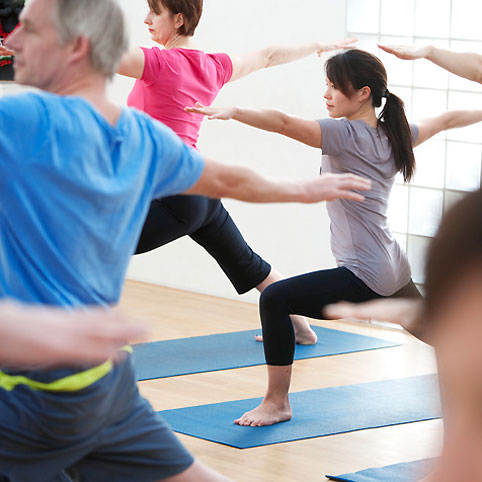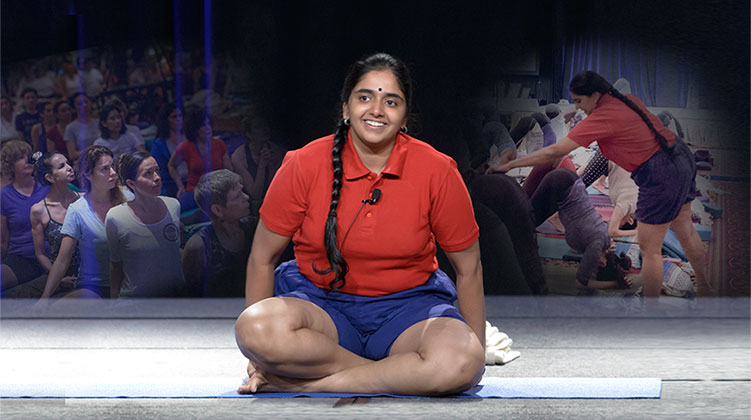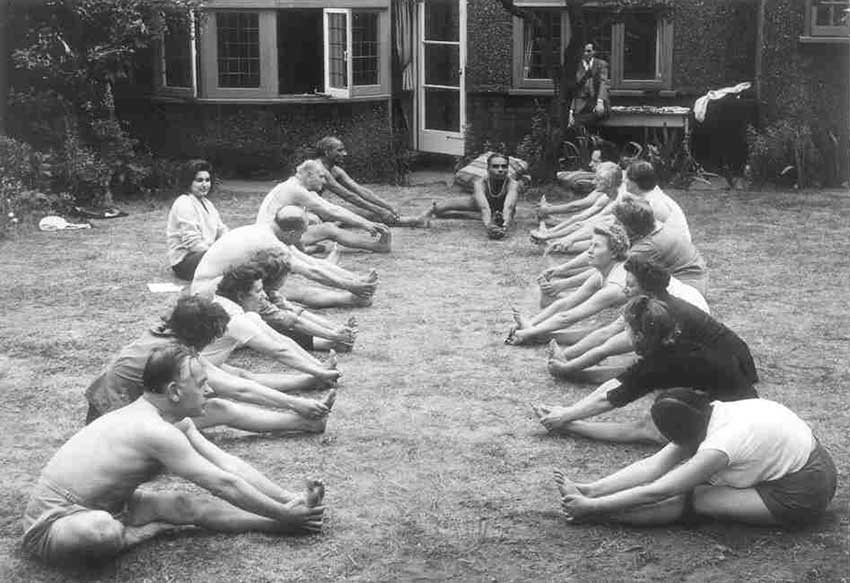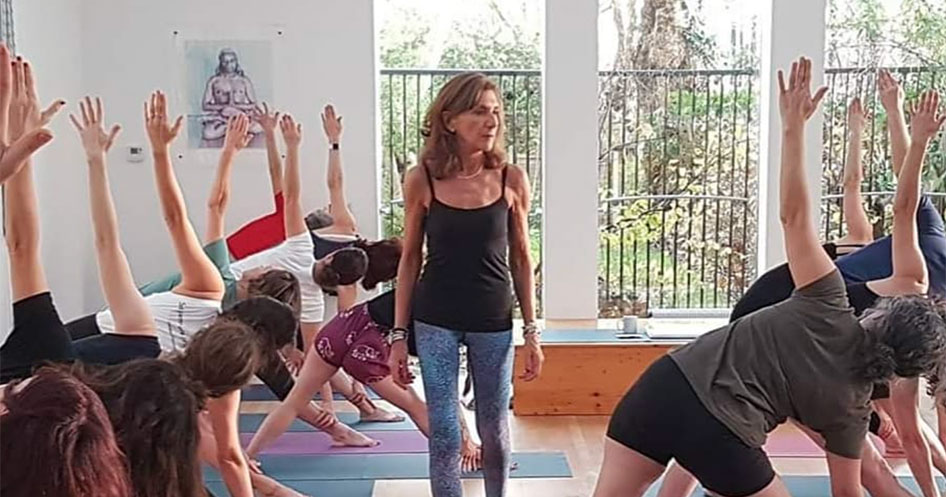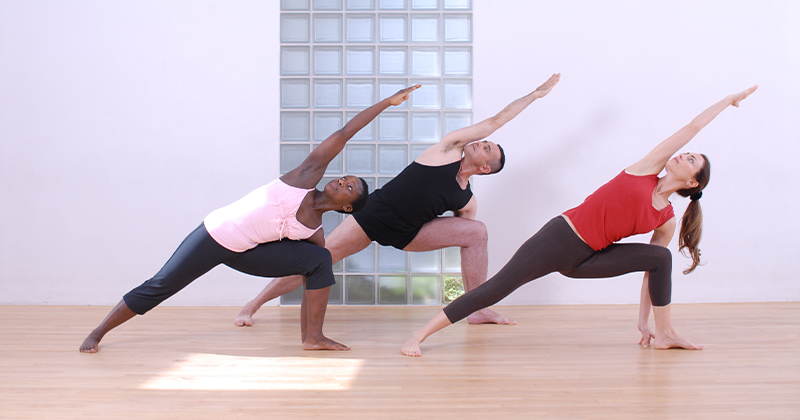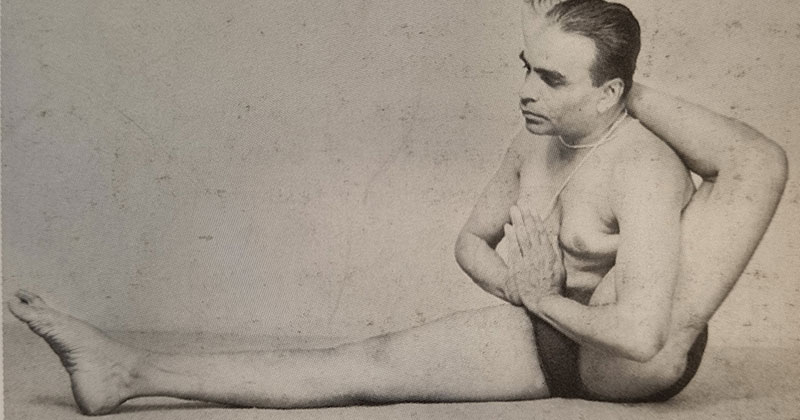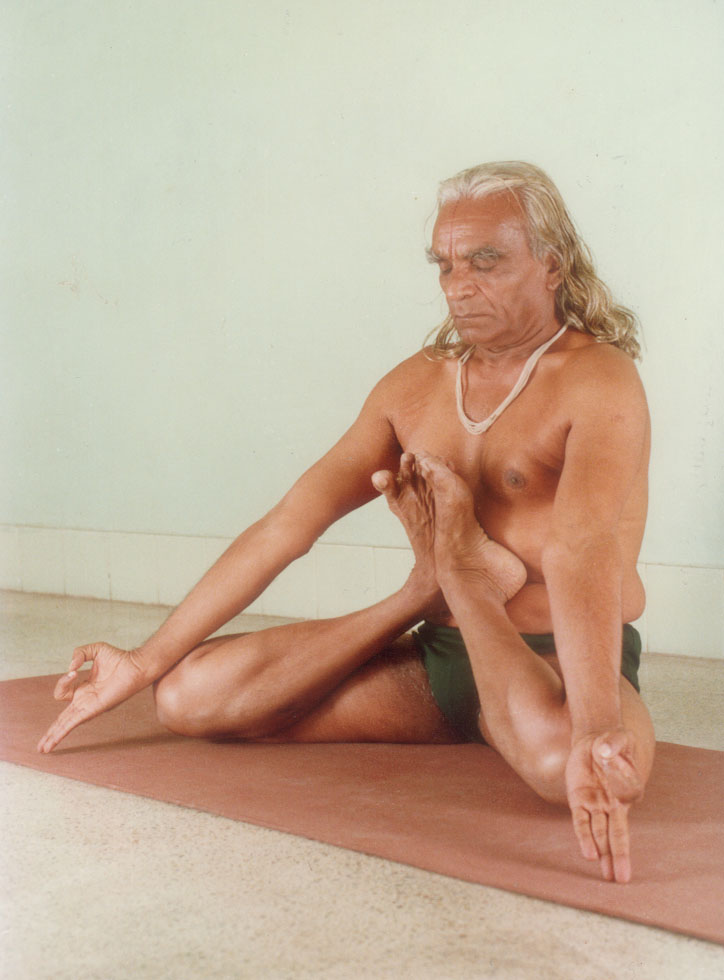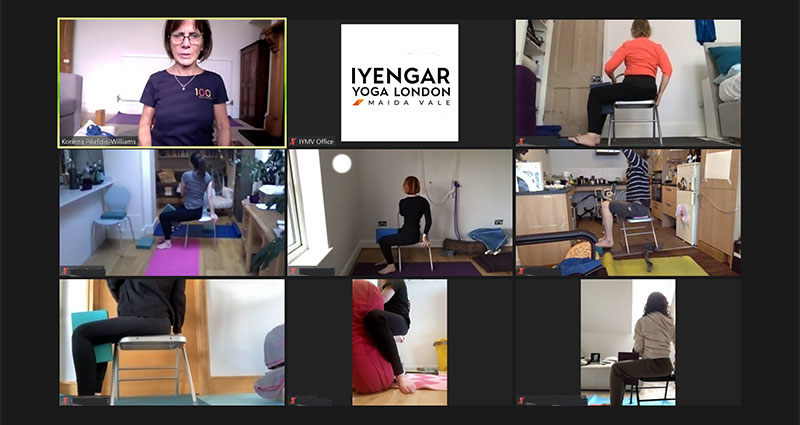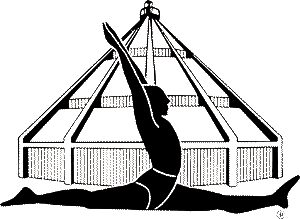Ainhoa Acosta has been a student at Maida Vale for many years and recently passed her Introductory Level 2 Iyengar yoga teaching assessment. Well done Ainhoa! She tells us about her experience of taking Iyengar yoga assessment.
The Iyengar yoga teacher training system is extremely rigorous. The basic qualification takes a minimum of two years of study and can only by taken up by students with three years or more of regular practice. For students, the thorough accreditation system means that when you go to an Iyengar yoga class, you can be confident your teacher has a high level of knowledge and experience. For teachers, it means a high level of commitment to yoga and taking assessments where experienced, senior teachers scrutinise every element of their practice and teaching. It’s a daunting prospect for even the most experienced teacher!
I had been practising for close to 12 years when I decided to apply for teacher training. Up until that moment, I enjoyed my practice and attending classes and didn’t want obligations (or more precisely, expectations) to spoil the joy of my practice. I applied for teacher training out of a desire to pass on what so generously and freely had been given to me and to share the gift of Yoga and the Iyengar tradition with others. Although I embarked on it with an open mind and was familiar with the rigour and discipline of Iyengar yoga, nothing would prepare me for the demands of the training programme and the discoveries I would make through it.
Teaching – a new set of skills
Teaching Yoga is not the same as practising Yoga. Of course, our practice is the cornerstone of everything we will do as Yoga teachers. Without a thorough and intimate knowledge of the asanas and pranayamas of the syllabus, no good teaching is possible. But teaching is a whole new set of skills in itself and this is what we were to learn over the two years of Introductory Teacher training. This training would culminate in the much anticipated assessment, when it would be decided whether we are ready to go out into the world to teach Iyengar yoga. Much has been said and written about assessments. I had read and heard the stories. When the day came, I felt I was as prepared as I could be at this point in time to go and do it.
Eat potatoes, it’s a marathon!
That final week, I remembered the advice of my teacher and trainers. ‘Eat potatoes the night before: it’s a marathon!’ ‘Forget about the assessors, teach for your students’. I felt a big responsibility to honour all the people who had so generously passed on their knowledge to me and countless others, but also to do my very best to teach well and help my students.
On the day, I arrived early to prepare and it was very comforting to see familiar faces of teachers and fellow trainees. So many people had wished me well that I felt my emotions might betray me in the practice room. By the time the assessors and moderator came in, the Yoga had worked its magic and I felt ready. After the personal practice section was over we were given our poses to teach and some time to prepare. We were now going into the unknown. Who would be there? How many students will we get? The thing to do was to go inside and focus on the teaching. Staying calm and focused while you inspire and energise your students is not an easy business. I felt huge respect for my teachers. The teaching of each pose went really quickly and by far the worst was the wait in between.
Daily practice makes everything okay
Afterwards, it was very difficult to deal with the uncertainty of what the result might be. I had done my best, but would this be enough? Self-doubt alternated with flashes of what I thought had gone well and what could have been done differently. The days that followed were a strange anti-climax of ‘and now what?‘, but also, after a couple of days, an opportunity to reflect on what I learnt during that day.
I realised that the assessment process is much more than showing what we can do or what we know. It is also about learning how you deal with difficult situations and with the unknown. Can you stay strong when things don’t go as planned? Can you see, really see, what is going on in front of you? Are you able to let go? Returning to my daily practice made everything okay again. Perspective regained, at least for a while.
Practice and detachment
On the way to my weekly class the day before I got my results, I thought that all this, too, was a really important part of the assessment process and shouldn’t be discarded. Patanjali’s Sutra I.12 tells us that practice (Abhyasa) and detachment (Vairagya) are the means to still the movements of consciousness. Abhyasa and Vairagya are described as the pillars of the Yoga practice. I thought about this Sutra’s relevance in an assessment situation and its importance in our Yoga journey.
Reading my assessment report, I felt huge relief but also deep gratitude. The detailed feedback I got would only serve to make my practice and teaching better and gave me something to work towards. To be part of a system where we are constantly supported and helped to improve is a gift that we should cherish. The assessment process, even if the result might not be what we expected, is yet another opportunity to learn from those that came before us and also from ourselves. I am grateful for all the work our teachers, trainers, assessors and moderators do day in, day out, to keep the Iyengar tradition alive and to help us all be the very best we can be.
Find out more about Iyengar yoga teacher training >
Blog categories
Become a member
Join our community to get reduced class prices, early booking for events and workshops plus access to the studio for self practice.
Recent news and articles
2024 Convention – Group Livestream Event
7 March 2024|
The First Public Iyengar Yoga Class in the UK
22 November 2023|
NEW Hybrid Classes
5 September 2023|
7 Day Visitor’s Pass
26 June 2023|
Geeta Iyengar on Why We Practise Difficult Asanas
26 June 2023|
Research Article – Yoga for People living with Multiple Sclerosis
13 February 2023|

